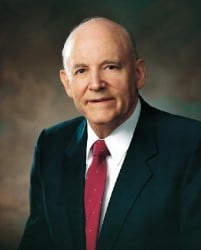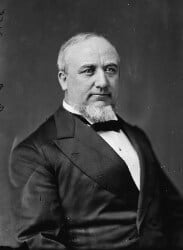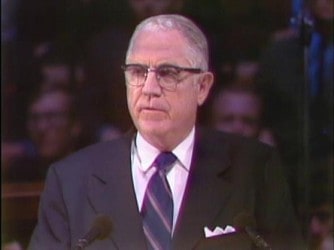
“To believe in God is impossible; but to not believe is absurd.”
LDS Quotes on Faith

“To believe in God is impossible; but to not believe is absurd.”


I believe in Christianity as I believe that the sun has risen: not only because I see it, but because by it I see everything else.
| Is Theology Poetry?

“In itself, doubt is neither good nor bad. Its value depends on what you do with it.”
| Letters to a Young Mormon

“Why would God go out of his way to hide evidence and make his own (world-historically pivotal) message more obscure and less credible? Or even more to the point, what about God’s own absence? Why put us in the same weak position as Lehi? Why give us a text, at least twice removed from God himself, rather than give us some kind of direct interaction with God? Is this a game or a test? Is God just testing us to see if we’ll believe things that we don’t have good evidence for? If this is the case, then what is God testing for, credulity? Is credulity the measure of a life, the litmus test for salvation? In effect, is God saying, ‘You’re welcome to join me in eternal bliss, but only if you’re willing to believe (in exactly the right way) things that I intentionally and unnecessarily made it really hard to understand and believe?’ I don’t buy it. I don’t buy this version of the story.”
| Future Mormon, p. 21


The Saints should not imagine that because they know the truth and the Work of God at the present time, that they will always know these things and therefore be able to stand. If they lose the Holy Spirit through their transgressions, from that moment their knowledge respecting the Work of God ceases to increase and becomes dead; a short time only elapses before such persons deny the faith. They may not deny that the Work was ever true, or that the Elders were ever the servants of God, but they will place a limit and say, ‘Up to such a time the work was true and the Elders were all right, but, after that, they went astray,’ – that very period being the time at which they themselves had committed some act or acts to forfeit the Spirit of God and kill the growth of that knowledge which they had had bestowed upon them. This has been the case in numerous instances in the past. . . . It is plain that it is they who have transgressed, and thereby driven the Spirit of the Lord from them; and at the very time they say the Church of God strayed, they themselves were guilty of transgression.
| “Knowledge, without the Aid of the Spirit of the Lord, Not Sufficient to Save,” Millennial Star, 8 Aug. 1863, pp. 505–6.

We’re not going to survive in this world, temporally or spiritually, without increased faith in the Lord – and I don’t mean a positive mental attitude – I mean downright solid faith in the Lord Jesus Christ. That is the one thing that gives vitality and power to otherwise rather weak individuals.
| “Developing Faith,” Ensign, November 1986, p. 72

You can’t merely snap your fingers and get great faith in God, any more than you can snap your fingers and get great musical ability. Faith takes hold of us only when we take hold of it. The great psychologist, William James, said, “That which holds our attention determines our action,” and one of the unfortunate things in life is that we sometimes focus our attention on the wrong things.
| Conference Report, April 1955, p. 117

“Honestly acknowledge your questions and your concerns, but first and forever fan the flame of your faith, because all things are possible to them that believe.”
| Lord, I Believe, April 2013 General Conference